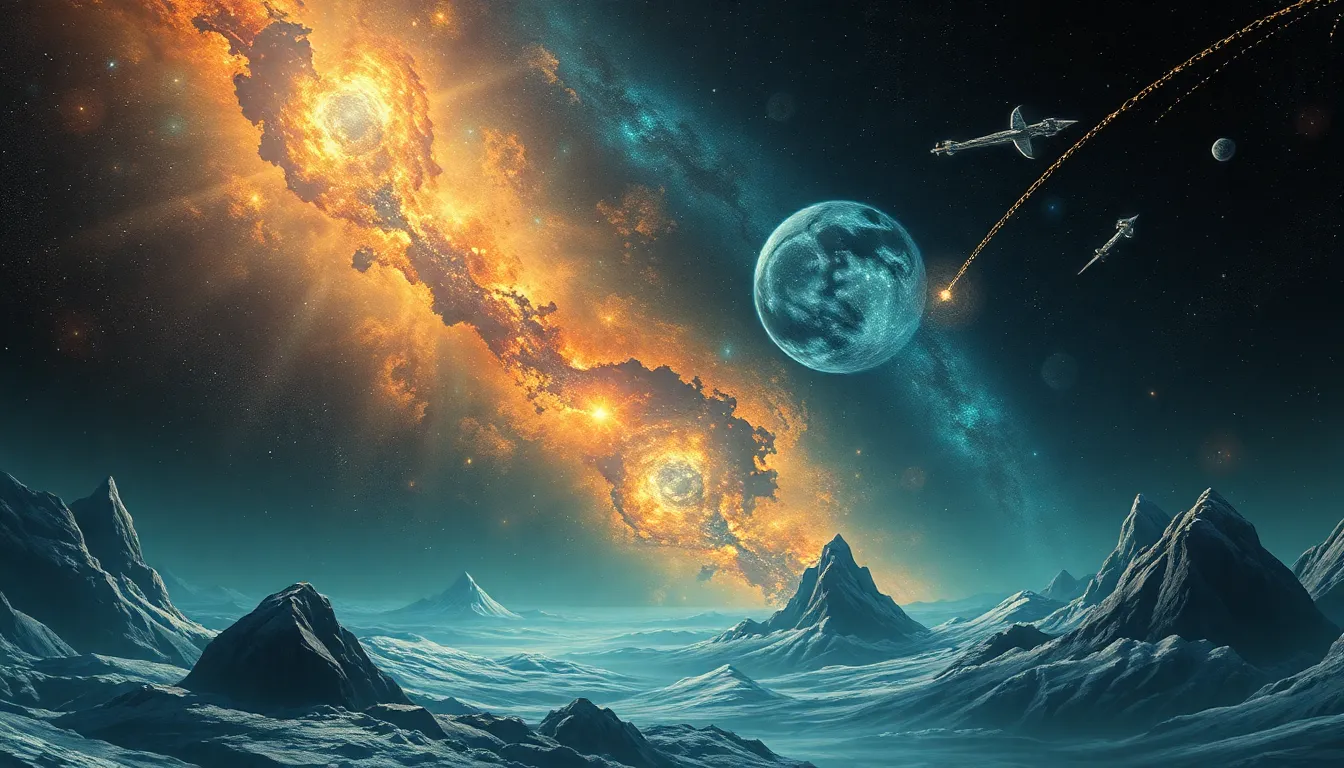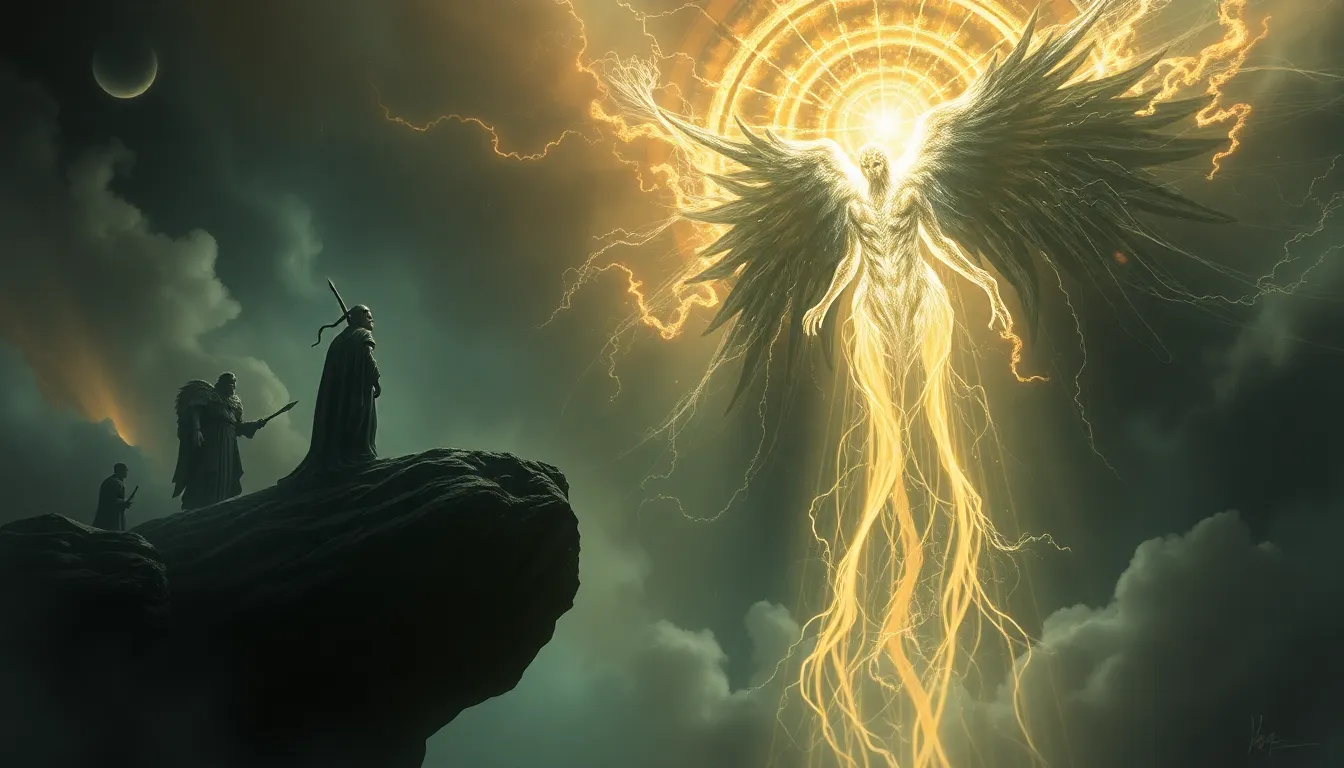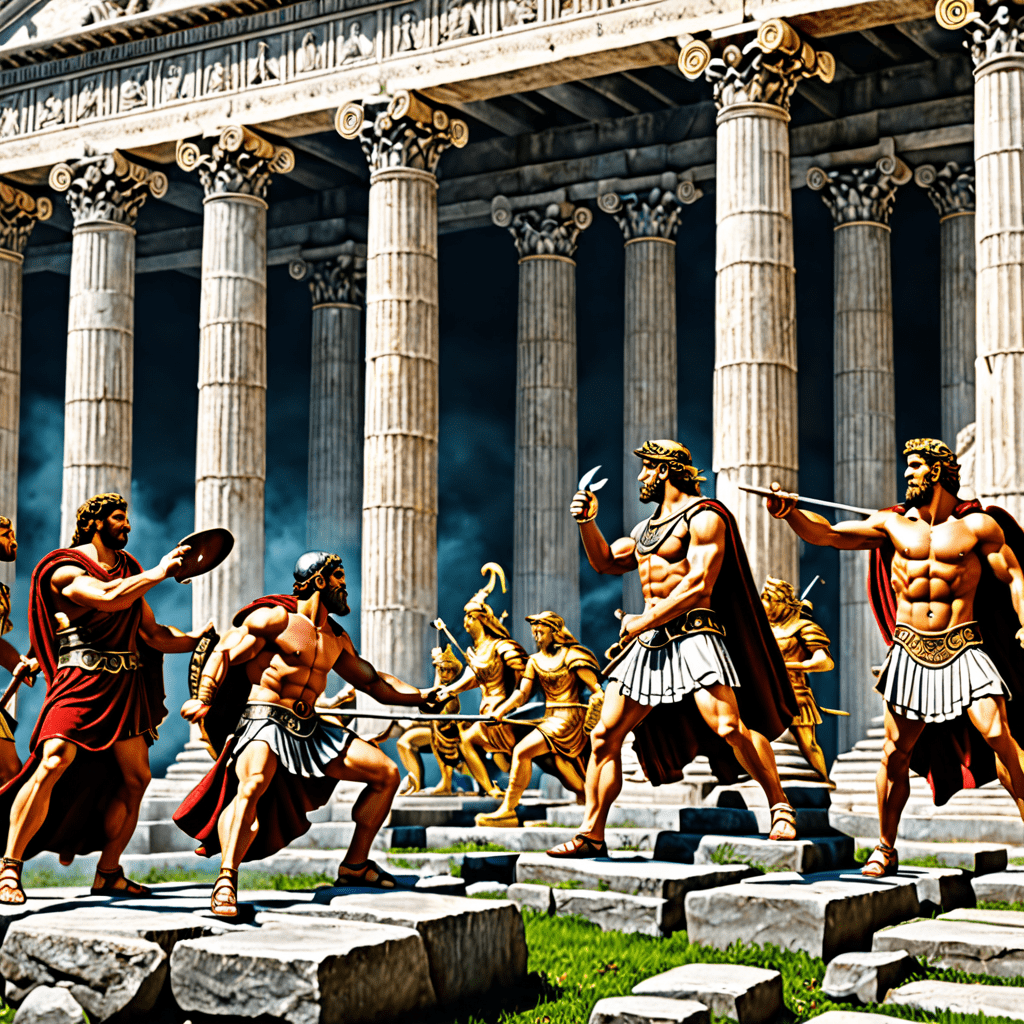The Myth of the Cosmic Voyage: Exploring the Universe
Introduction to Cosmic Voyages
The concept of cosmic voyages has intrigued humanity for centuries. Defined as the exploration of outer space and the celestial phenomena beyond Earth, cosmic voyages blend the realms of science, mythology, and imagination. Historically, the fascination with space exploration can be traced back to ancient civilizations, where the night sky was a source of wonder and mystery, influencing cultures, religions, and scientific pursuits.
The Origins of Cosmic Myths and Legends
Throughout history, various ancient civilizations have crafted their interpretations of the cosmos, often embedding these beliefs within their cultural narratives. From the Egyptians’ reverence for the stars as gods to the Mayans’ intricate calendars based on celestial movements, the cosmos has played a pivotal role in shaping mythological stories.
- Babylonian Astronomy: The Babylonians were among the first to document celestial events, believing that the movements of planets were divine messages.
- Greek Mythology: Greek myths often featured constellations as representations of their gods, illustrating the deep connection between mythology and the stars.
- Indigenous Cultures: Many indigenous cultures, such as the Native Americans, have rich traditions that include stories of celestial beings and the significance of the Milky Way.
The Evolution of Space Exploration
From the ancient astronomers observing the night sky to today’s sophisticated space missions, the evolution of space exploration has been marked by significant milestones. These developments have expanded our understanding of the universe.
- Early Astronomy: Figures like Copernicus and Galileo revolutionized our understanding of the solar system.
- The Space Race: The mid-20th century saw intense competition between the USA and USSR, culminating in the moon landing in 1969.
- Modern Missions: Recent explorations, such as the Mars rovers and the Voyager spacecraft, have provided invaluable data about our solar system and beyond.
The Science Behind Cosmic Voyages
Modern technology has revolutionized space exploration, enabling us to venture further into the cosmos than ever before. Various tools and spacecraft have been developed to gather information and provide insights into the universe.
- Spacecraft: Vehicles like the Hubble Space Telescope and the Perseverance rover are equipped with advanced instruments that capture images and data from distant celestial bodies.
- Telescope Technology: Ground-based and space-based telescopes have enhanced our ability to observe cosmic phenomena, allowing astronomers to study the universe in unprecedented detail.
- Robotic Missions: Robotic missions have proven essential for exploring hostile environments, such as the surface of Mars and the icy moons of Jupiter.
The Role of Imagination in Cosmic Exploration
The interplay between science fiction and scientific advancements has been a driving force in the evolution of space exploration. Many visionary ideas rooted in fiction have inspired real-world missions.
For example:
- Star Trek: The concept of warp drives and interstellar travel has influenced engineers and scientists to think beyond current technological limitations.
- 2001: A Space Odyssey: Arthur C. Clarke’s depiction of artificial intelligence and space stations sparked discussions about the future of space travel and habitation.
The Psychological Impact of Cosmic Voyages
Space exploration has profound effects on human psychology and culture. The vastness of the universe often leads to philosophical and existential contemplation.
Some psychological effects include:
- Overview Effect: Astronauts often report a shift in perspective after seeing Earth from space, fostering a sense of unity and responsibility for our planet.
- Cultural Reflection: The exploration of space has inspired art, literature, and philosophy, challenging humanity’s understanding of existence.
Challenges of Space Travel
Despite advancements, space travel presents numerous challenges, both technical and ethical. Some of the major hurdles include:
- Technical Challenges: Developing life-support systems, radiation protection, and sustainable energy sources for long-duration missions.
- Ethical Considerations: The implications of colonizing other planets and the potential impact on extraterrestrial ecosystems.
- Human Habitation: Research is ongoing into the psychological and physical effects of long-term space travel on astronauts.
Debunking Common Myths About the Universe
There are several misconceptions about the universe that need clarification. Addressing these myths helps foster a better understanding of cosmic phenomena.
- Black Holes: Contrary to popular belief, black holes do not “suck” everything in; their gravitational pull only affects objects that come too close.
- Wormholes: While theoretically possible, wormholes remain speculative and unproven; they are not pathways for instantaneous travel.
- Extraterrestrial Life: The search for extraterrestrial life is ongoing, but there is currently no definitive evidence of life beyond Earth.
Future of Cosmic Exploration
The future of cosmic exploration looks promising, with emerging technologies and potential missions on the horizon. Key areas of focus include:
- Emerging Technologies: Advancements in propulsion systems, artificial intelligence, and robotics are expected to enhance our exploratory capabilities.
- International Cooperation: Collaborative efforts, such as the Artemis program and the International Space Station, are vital for shared knowledge and resources.
Conclusion: The Ongoing Journey of Understanding the Universe
In conclusion, the journey of understanding the universe is a blend of scientific inquiry and mythological storytelling. Both perspectives enrich our comprehension of cosmic mysteries and inspire continued curiosity. As we push the boundaries of space exploration, it is essential to embrace both the science and the myths that have historically shaped our views of the cosmos, leading us to a deeper appreciation of our place in the universe.




